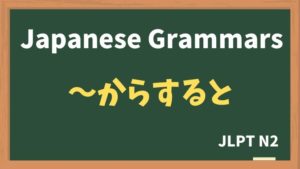
Explanation:〜だけあって
fa-check-circleMeaning
"〜だから当然 / 〜にふさわしい程度の"
XだけあってY:X as a reason that the speaker expects Y to be true.
Used to indicate that something is as expected due to a particular reason or qualification. It is often used to praise or acknowledge that someone or something meets expectations based on their ability, experience, or situation.
fa-check-circleForm
V(plain form) + だけあって
イA(plain form) + だけあって
ナA(plain form) + だけあって
N + だけあって
fa-check-circlePoints
- Positive Expectation: "〜だけあって" highlights that a result or quality is expected due to someone's abilities, experience, or a particular condition.
- Cause and Effect: It shows that the reason given is a natural cause for the outcome.
- Often Praiseworthy: This phrase is commonly used when giving compliments or acknowledging someone's strengths or qualifications.
fa-check-circleJLPT Level
N2
Sample sentenes
トムさんは日本に留学しただけあって、日本語がとても上手だ。
Tom has studied abroad in Japan, so he speaks Japanese very well.
このホテルは五つ星ホテルだけあって、サービスがとてもいい。
This hotel is a five-star hotel, so the service is excellent.
彼はおもしろいだけあって 、友達が多い。
He's funny, so he has a lot of friends.
彼は大きな会社に勤めているだけあって、給料がいい。
He works for a big company, so he earns a good salary.
彼は東京大学を卒業しただけあって、頭がいい。
He graduated from the University of Tokyo, so he is smart.
Vocabulary
| Japanese |
English | |
| 五つ星 | いつつぼし | five stars |
| 勤める | つとめる | to work for |






